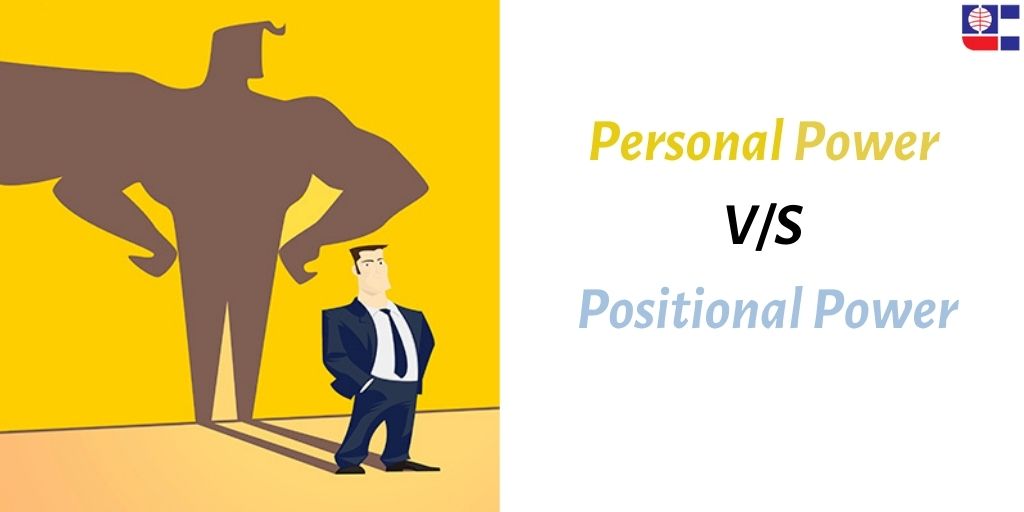
As the popular idiom goes, with great power comes great responsibility, and it is assumed that power comes with experience, wisdom, trust from people around us and in the context of the workplace, the position. But powers can be of various kinds of; a manager, or executive or any upper-level management can be said to have ‘positional power’. Their power to undertake tasks, to delegate, to act as a representative, to make key decisions comes from their position. As the term suggests, it is a hierarchy-based power. That is one type of power, called the positional power.
There is another type of power, what one might call ‘personal power’. As the name suggests, such a power can be harnessed at a more personal level. Personal power comes from the recognition of power in oneself; the power to take responsibility and to have a sense of purpose; the power to believe in oneself and one’s competence. Recognition of personal power in oneself leads to recognition by others of that same power. It is personal power that enables your colleagues to trust you and see you as a pillar in times of conflict.
Ultimately, regardless of whether you have the positional power, it is the personal power that makes you a leader. Positional power can make you a manager on paper, but without harnessing your personal power, becoming a manager who leads, is almost an impossibility.
So, what are some ways one can harness this personal power and light up the spark of leadership and self-belief?
Have a Growth Mindset: This is a buzzword we all have heard at some point. But it’s really a simple concept, and once we realise this, it becomes an obvious mindset to have. Growth mindset means a mindset where you are curious to know more; where you see every day and every interaction an opportunity to grow your understanding. It includes the acceptance that you may be wrong or that you can’t be the expert in everything, but that nevertheless you always, always learn.
Be it upper-level management or an entry level position, curiosity and a willingness to listen is a definitely power. A manager with a growth mindset, curious and willing to listen, encourages new ideas, a myriad of voices, allowing the team members to speak up without hesitation. Contrast this someone who doesn’t listen, or someone who only listens to a select few. The former would definitely have more of the personal power, with the recognition and trust from the team that ‘Yes, this person will listen to my ideas respectfully.’
Have a Purpose: Having a sense of purpose it under-rated. To quote an article by People Matters:
‘Being connected to a greater purpose enables you to use your power effectively. The sense of meaning and mission in life means you don’t get caught up in momentary dramas. Your day isn’t a matter of ticking items off your to-do list, but of connecting your every action to your greater goal. Having purpose gives you resilience; you’re more able to reset after failure because you have a north star guiding you.
Purpose directs us under crisis and extreme stress.’
It is this ‘north-star’ of the greater goal that helps you to harness your power without falling into the vices of office politics and petty issues.
Close to having a sense of purpose is the next point.
Have a Sense of Focus: With positional power comes the responsibility of the need to tick off multiple tasks, of having multiple to-do lists, spanning across departments.
It is important to respond to the right issues. To quote the People Matters article again,
‘Without the capacity to direct your attention, you are a leaf in the wind, blown about every which way. You respond to everything but accomplish nothing…you must quiet the inner and outer voices and develop your emotional self-regulation, so you don’t react to every little thing. And above all, you must set boundaries to have time to think, reflect, and contemplate.’
Creating priority lists, with urgent to important spectrums defined, delegating tasks which often act as incentives, are some ways one can develop this sense of focus.
Have a Sense of Responsibility: And finally, personal power cannot be ignited without a sense of responsibility. Whether you have positional power or not, a sense of responsibility to grow, to help others grow, to learn and help others learn is essential to feel powerful and not feel like a victim of circumstances, where power might feel like something thrust upon you.
A willingness to take charge regardless of one’s position enables you see opportunities even in tricky situations. Such a sense of responsibility is the key to acknowledging your power to make tiny to big changes, and to be the change.
Positional power is designated, whereas personal power comes from within, and that is the beauty of it- irrespective of the status on paper, you can always be in charge of your own destiny by igniting the personal powers of growth, purpose, focus, and responsibility.

